-
 Bitcoin
Bitcoin $87,772.6996
0.99% -
 Ethereum
Ethereum $1,570.5330
-2.49% -
 Tether USDt
Tether USDt $1.0000
0.01% -
 XRP
XRP $2.0836
-1.10% -
 BNB
BNB $599.1765
0.07% -
 Solana
Solana $138.0201
-2.11% -
 USDC
USDC $0.9999
0.01% -
 Dogecoin
Dogecoin $0.1599
0.63% -
 TRON
TRON $0.2467
0.31% -
 Cardano
Cardano $0.6233
-1.67% -
 Chainlink
Chainlink $13.1154
-2.78% -
 UNUS SED LEO
UNUS SED LEO $9.1017
-1.66% -
 Avalanche
Avalanche $19.7493
-1.09% -
 Stellar
Stellar $0.2496
0.02% -
 Toncoin
Toncoin $2.9084
-3.65% -
 Shiba Inu
Shiba Inu $0.0...01230
-2.09% -
 Sui
Sui $2.2248
2.27% -
 Hedera
Hedera $0.1694
-0.70% -
 Bitcoin Cash
Bitcoin Cash $342.3982
0.49% -
 Hyperliquid
Hyperliquid $18.1794
-0.12% -
 Litecoin
Litecoin $78.6773
-0.19% -
 Polkadot
Polkadot $3.7586
-4.30% -
 Dai
Dai $0.9998
-0.02% -
 Bitget Token
Bitget Token $4.4381
-1.01% -
 Ethena USDe
Ethena USDe $0.9992
0.01% -
 Pi
Pi $0.6309
-1.94% -
 Monero
Monero $214.9808
-0.07% -
 Uniswap
Uniswap $5.2523
-2.33% -
 Pepe
Pepe $0.0...07838
1.42% -
 OKB
OKB $50.7171
-0.70%
can an nft drain your wallet
NFTs, while fascinating digital assets, carry potential security risks that could compromise your cryptocurrency wallet. Vigilance and adherence to safety measures are crucial to safeguard your digital funds.
Oct 15, 2024 at 01:36 pm
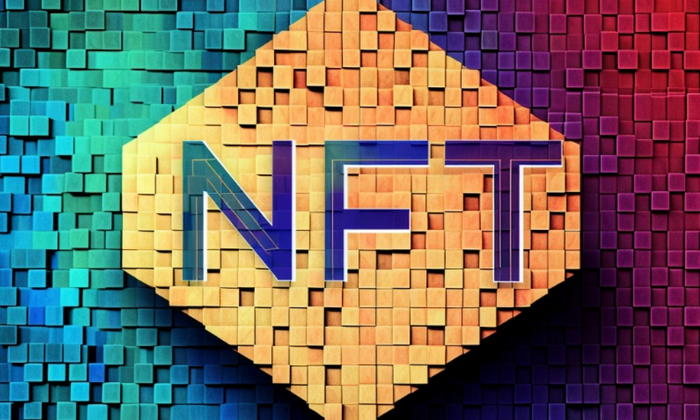
Can an NFT Drain Your Wallet?
In the world of digital assets, a non-fungible token (NFT) has gained prominence as a unique and valuable item. However, due to the complex nature of NFTs and the security risks associated with digital transactions, concerns have arisen about the potential for NFTs to drain your cryptocurrency wallet.
Understanding NFTs and Their Interactions with Your Wallet
NFTs are unique digital assets that represent ownership of specific digital or physical items. When you purchase an NFT, you are essentially buying the rights to that asset on a blockchain network. The NFT itself does not hold any real-world value, but it represents a unique identifier for the item it represents.
NFTs interact with your wallet when you purchase them, as you need to pay for the NFT using a cryptocurrency, typically Ethereum. The transaction fee for purchasing an NFT can vary depending on the blockchain network and the congestion at the time of purchase. Once the transaction is complete, the NFT will be stored in your wallet until it is sold or transferred.
Potential Security Risks Associated with NFTs
While NFTs themselves are not inherently dangerous, several potential security risks can lead to your wallet being compromised. These include:
- Phishing scams: Fraudsters may create fake NFT marketplaces or websites that mimic legitimate platforms to trick users into providing their wallet information and private keys. These platforms can then access your wallet and drain your funds.
- Malware: Hackers can create malicious software or apps that gain access to your wallet and transfer your NFTs to their own accounts without your knowledge. This can occur through infected links or attachments in emails or through social engineering techniques.
- Smart contract vulnerabilities: Smart contracts are the code underlying NFTs and can potentially contain vulnerabilities. If these vulnerabilities are exploited, an attacker could modify the contract to allow them to drain your wallet or transfer NFTs without your authorization.
How to Protect Yourself from NFT Theft
To minimize the risks of your wallet being drained due to NFTs, you should take the following precautions:
- Use reputable NFT marketplaces: Only buy NFTs from trusted and established platforms that have a proven track record of security. Avoid marketplaces with suspicious or unfamiliar names or domain names.
- Be cautious of unsolicited NFTs: If you receive an unsolicited NFT from an unknown sender, do not interact with it. It may be a ploy to compromise your wallet or gain access to your private information.
- Use a secure wallet: Store your NFTs and cryptocurrencies in a reputable and secure hardware wallet or software wallet that supports NFT storage. This adds an extra layer of protection against unauthorized access.
- Keep your software up to date: Regularly update your operating system, browser, and wallet software to patch any security vulnerabilities that could be exploited by attackers.
- Educate yourself about NFT security: Familiarize yourself with the common security risks associated with NFTs and take steps to protect your assets.
Conclusion
While NFTs offer unique opportunities for digital asset ownership, it is essential to be aware of the potential security risks associated with them. By understanding how NFTs interact with your wallet and taking appropriate precautions, you can minimize the chances of your wallet being drained by malicious actors. Remember to prioritize security measures, use trusted platforms, and educate yourself to protect your digital assets.
Disclaimer:info@kdj.com
The information provided is not trading advice. kdj.com does not assume any responsibility for any investments made based on the information provided in this article. Cryptocurrencies are highly volatile and it is highly recommended that you invest with caution after thorough research!
If you believe that the content used on this website infringes your copyright, please contact us immediately (info@kdj.com) and we will delete it promptly.
- Meteora Labs sued by investors over alleged M3M3 token price manipulation
- 2025-04-22 09:40:12
- This is a published version of our weekly Forbes Crypto Confidential newsletter. Sign up here to get Crypto Confidential days earlier free in your inbox.
- 2025-04-22 09:40:12
- Trump Token Unlocks Are When a Group of People—Usually Project Team Members, Early Investors or Advisors—Receive Their Allocated Tokens
- 2025-04-22 09:35:14
- Meme cryptocurrency Dogecoin is currently trading at an important support level against Bitcoin
- 2025-04-22 09:35:14
- Dogecoin (DOGE) Price Broke Out of Two Technical Patterns, Setting the Stage for a Bullish Run
- 2025-04-22 09:30:12
- Mutuum Finance (MUTM) Presale Raises Over $7M From 8400+ Buyers
- 2025-04-22 09:30:12
Related knowledge
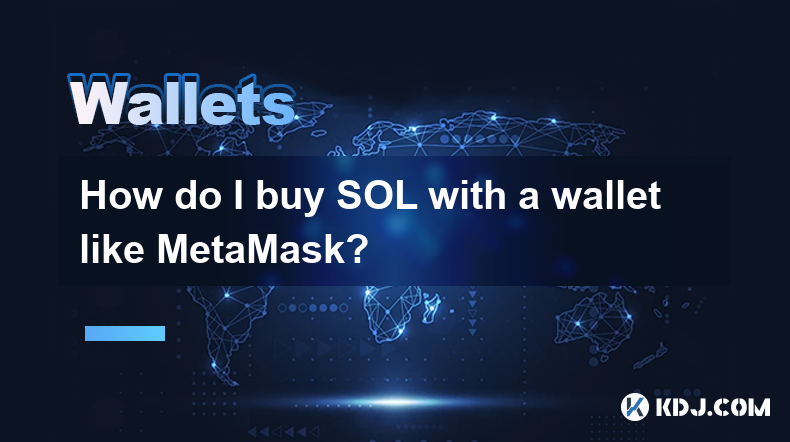
How do I buy SOL with a wallet like MetaMask?
Apr 20,2025 at 01:35pm
How do I Buy SOL with a Wallet Like MetaMask? Purchasing Solana (SOL) using a wallet like MetaMask involves a few steps, as MetaMask primarily supports Ethereum and Ethereum-based tokens. However, with the help of decentralized exchanges (DEXs) and some intermediary steps, you can acquire SOL. This article will guide you through the process in detail. S...
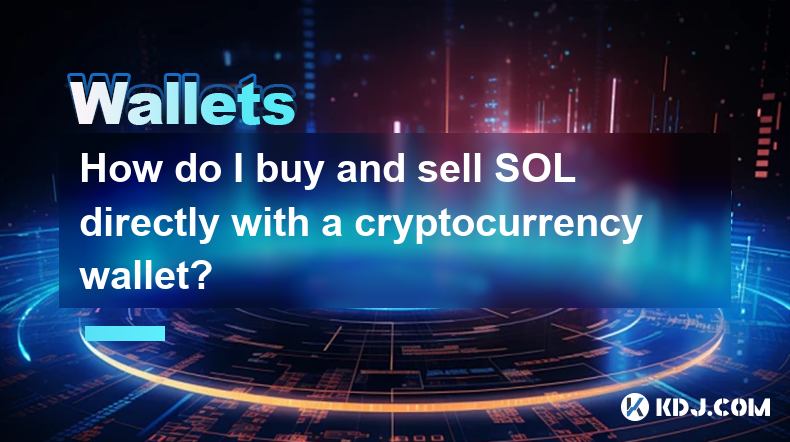
How do I buy and sell SOL directly with a cryptocurrency wallet?
Apr 19,2025 at 05:35pm
Introduction to Buying and Selling SOL with a Cryptocurrency WalletBuying and selling Solana (SOL) directly from a cryptocurrency wallet offers a convenient and secure way to manage your digital assets. Cryptocurrency wallets are essential tools for anyone looking to interact with the Solana blockchain. They allow you to store, send, and receive SOL wit...
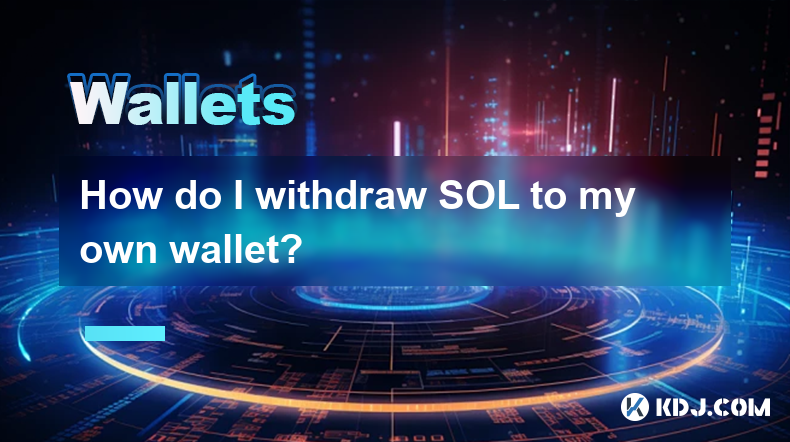
How do I withdraw SOL to my own wallet?
Apr 20,2025 at 04:21pm
Introduction to Withdrawing SOL to Your Own WalletWithdrawing Solana (SOL) to your own wallet is a straightforward process, but it requires careful attention to detail to ensure that your funds are transferred safely and efficiently. SOL is the native cryptocurrency of the Solana blockchain, known for its high throughput and low transaction fees. Whethe...
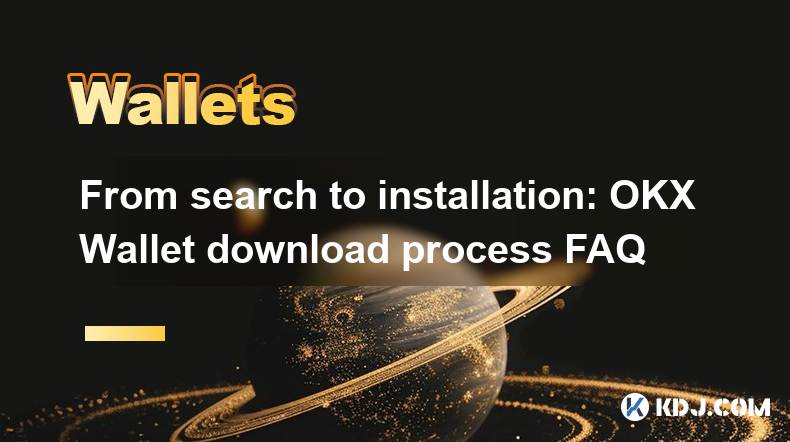
From search to installation: OKX Wallet download process FAQ
Apr 17,2025 at 02:00pm
The OKX Wallet is a popular choice among cryptocurrency enthusiasts for managing their digital assets securely and efficiently. Understanding the process from searching for the wallet to its installation can be crucial for new users. This article will guide you through the entire process, providing detailed steps and answers to frequently asked question...
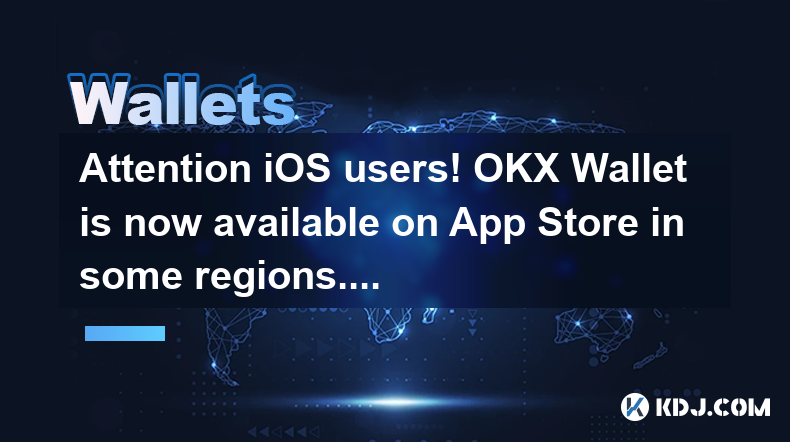
Attention iOS users! OKX Wallet is now available on App Store in some regions. How to check its availability?
Apr 20,2025 at 05:21pm
Attention iOS users! OKX Wallet is now available on App Store in some regions. If you're eager to check its availability and start using this versatile cryptocurrency wallet, follow our detailed guide. We'll walk you through the steps to confirm if OKX Wallet is accessible in your region, and provide insights into its features and benefits. Checking OKX...
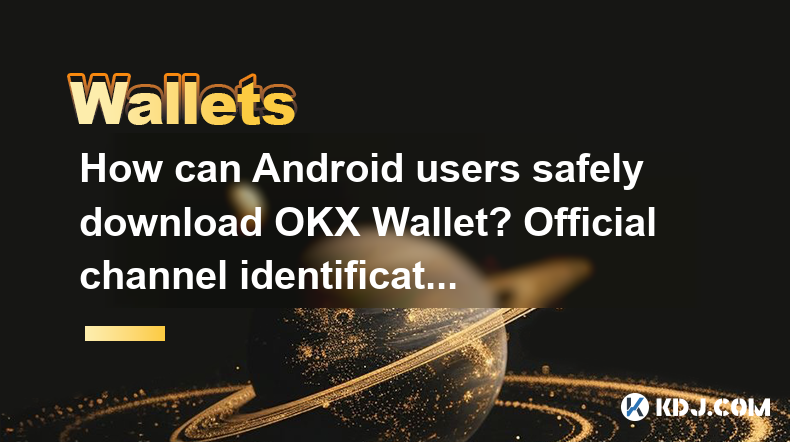
How can Android users safely download OKX Wallet? Official channel identification guide
Apr 19,2025 at 10:50pm
How can Android users safely download OKX Wallet? Official channel identification guide Ensuring the safety and security of your cryptocurrency assets begins with downloading apps from trusted sources. For Android users interested in using OKX Wallet, it's crucial to identify and use the official channels to avoid downloading malicious software. This gu...

How do I buy SOL with a wallet like MetaMask?
Apr 20,2025 at 01:35pm
How do I Buy SOL with a Wallet Like MetaMask? Purchasing Solana (SOL) using a wallet like MetaMask involves a few steps, as MetaMask primarily supports Ethereum and Ethereum-based tokens. However, with the help of decentralized exchanges (DEXs) and some intermediary steps, you can acquire SOL. This article will guide you through the process in detail. S...

How do I buy and sell SOL directly with a cryptocurrency wallet?
Apr 19,2025 at 05:35pm
Introduction to Buying and Selling SOL with a Cryptocurrency WalletBuying and selling Solana (SOL) directly from a cryptocurrency wallet offers a convenient and secure way to manage your digital assets. Cryptocurrency wallets are essential tools for anyone looking to interact with the Solana blockchain. They allow you to store, send, and receive SOL wit...

How do I withdraw SOL to my own wallet?
Apr 20,2025 at 04:21pm
Introduction to Withdrawing SOL to Your Own WalletWithdrawing Solana (SOL) to your own wallet is a straightforward process, but it requires careful attention to detail to ensure that your funds are transferred safely and efficiently. SOL is the native cryptocurrency of the Solana blockchain, known for its high throughput and low transaction fees. Whethe...

From search to installation: OKX Wallet download process FAQ
Apr 17,2025 at 02:00pm
The OKX Wallet is a popular choice among cryptocurrency enthusiasts for managing their digital assets securely and efficiently. Understanding the process from searching for the wallet to its installation can be crucial for new users. This article will guide you through the entire process, providing detailed steps and answers to frequently asked question...

Attention iOS users! OKX Wallet is now available on App Store in some regions. How to check its availability?
Apr 20,2025 at 05:21pm
Attention iOS users! OKX Wallet is now available on App Store in some regions. If you're eager to check its availability and start using this versatile cryptocurrency wallet, follow our detailed guide. We'll walk you through the steps to confirm if OKX Wallet is accessible in your region, and provide insights into its features and benefits. Checking OKX...

How can Android users safely download OKX Wallet? Official channel identification guide
Apr 19,2025 at 10:50pm
How can Android users safely download OKX Wallet? Official channel identification guide Ensuring the safety and security of your cryptocurrency assets begins with downloading apps from trusted sources. For Android users interested in using OKX Wallet, it's crucial to identify and use the official channels to avoid downloading malicious software. This gu...
See all articles






















































































